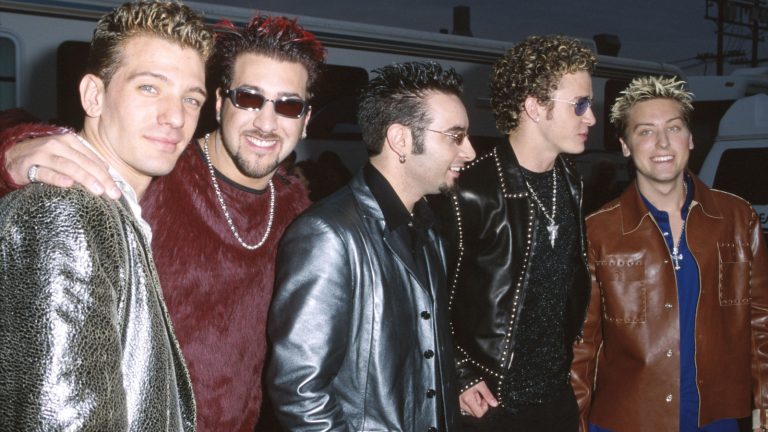Book Appointment Now
The Secret History by Donna Tartt
Since its publication in 1992, every generation has found its way back to “The Secret History,” drawn as they are to its frostbitten Vermont mornings, its cloistered rituals, its elitist, intellectual glamour, and its guilt. Donna Tartt’s debut remains the blueprint for so much: dark academia, contemporary campus novels, and the literary thriller that unfolds in how it haunts. More than thirty years on, no successor has matched the spell it casts on fiction.
Jenna Bush Hager agrees. She told her viewers she’s been recommending it for three decades, and Tartt’s draw endures. A murder is revealed on the first page, and we’re told who dies and who’s responsible before the story has even begun. What follows is a forensic study of the atmosphere that made it possible. Richard Papen, the outsider narrator, arrives at a small Vermont college and is drawn into the gravitational pull of a group of classics students. Under the guidance of their elusive professor, they slip into a world where ancient ideals blur with modern amorality.
Sentence by sentence, this hypnotic book builds a world so alluring and cold that the line between brilliance and brutality becomes unrecognizable. Logic tightens around its players, and beauty masks the unfolding violence. No one emerges unchanged, least of all the reader. Its power hasn’t lessened with time, and even after all these years, it’s as finely wrought and spectral as ever. A masterpiece in every sense.
The Cloisters by Katy Hays
For those already chilled by the classical shadow and moral decay of “The Secret History,” Katy Hays conjures a similarly intoxicating descent with “The Cloisters.”
Ann Stilwell comes to New York expecting a conventional museum internship and instead finds herself at a strange, cloistered satellite of the Met, hidden at the edge of Manhattan. She is quickly absorbed into a small circle of researchers tethered to the idea that meaning might be found in the shuffle of a deck of 15th-century tarot cards. Her supervisor speaks in half-truths. Her peers seem to float just above her. The urban summer air thickens, and time begins to warp.
This suspenseful thriller is a natural fit for readers drawn to the simmering precincts of dark academia, art history, or the esoteric. Jenna Bush Hager said Hays “writes about place better than almost any writer I’ve ever read.” It’s true: Prepare for a slow, heady, disorienting atmosphere that settles in like incense. As for the ending, you won’t see it coming. Whether you call it fate or something more calculated, by the time the story reveals itself, there’s no use resisting.
The Turnout by Megan Abbott
Ballet is a world built on illusion. Bodies are contorted into unnatural shapes. Smiles are frozen in place. The appearance of ease disguises unthinkable strain. Megan Abbott grasps the violence of grace better than most, as she turns her gaze to the ballet studio — that pink-saturated temple of discipline and pain — for her 2021 novel, “The Turnout.”
Dara and Marie Durant, sisters and former dancers, live above the ballet school founded by their mother. They now run it with Dara’s husband Charlie — once their mother’s protégé, now something like family, and yet, never quite not aloof. The three exist in a state of near-stasis, cloistered within the same childhood home, repeating the same seasonal rituals, preparing once again for the annual performance of “The Nutcracker.” Insular, bruised, and tightly wound, their lives unspool into something more corrosive and more difficult to contain.
The brilliance we’ve come to expect from Abbott lies not in the twist (though there is one), but in the atmosphere. She renders her story in exacting, granular detail, and her sentences flex like dancers’ backs: elegant but under immense pressure. Her characters are all haunted by the physical vocabulary of girlhood, ambition, and sexual unease. The effect is suffocating, but in the best, most “on point” way.
Winner of the Los Angeles Times Book Prize for Mystery/Thriller, it’s a must-read for fans of “The Virgin Suicides,” “Black Swan,” or the Nutcracker aesthetic that brought balletcore to the fashion zeitgeist.
Remarkably Bright Creatures by Shelby Van Pelt
For those who want a mystery but not the heavy-handedness of a dark, distressing read, try “Remarkably Bright Creatures” by Shelby Van Pelt. The novel is suffused with loss, but never weighed down by it, forming a kind of intertidal mystery that drifts between sadness and hope without ever fully drowning its reader.
Tova is a lonely widow who takes a night job cleaning a small-town aquarium in the Pacific Northwest. Her companion on these quiet shifts is Marcellus, a curmudgeonly giant Pacific octopus with a talent for escape and a surprisingly sharp eye for human folly. The two form an unlikely bond that gently begins to unearth long-silenced questions about a son who vanished decades earlier, and a life still circling its own unanswered grief.
Van Pelt’s voice is calm and buoyant, letting the plot unfold like a slow ripple. This is not a mystery built on bloodstains and interrogation rooms. Instead, readers can expect a charming novel that wraps its tentacles around big themes of loss, family, and the passage of time. If you have ever suspected that tenderness can be its own kind of twist, this is the mystery for you.
All the Colors of the Dark by Chris Whitaker
Dark by name and dark by nature is Christ Whitaker’s 2024 novel and Jenna Bush Hager’s November 2024 book club pick. It opens with shocking acts of violence involving local girls, a boy, and a haunting masked figure. Set in the foggy emotional landscape of a fictional Missouri town, this novel lures you in under the pretense of the thriller genre, but gradually mutates into something much denser.
Whitaker has always written on the borders of genre, and with “All the Colors of the Dark,” he continues that trend. He remains deliberate in pacing and ambitious in scope as the novel slips between voices and years. Wounds are both visible and invisible — from the basement where Patch is held to the rooms above where people try to move on without him. His best friend Saint, dogged and soft-edged, serves as a moral counterweight to the darker forces at play, and their bond gives the book its emotional core. It’s this friendship, stretched across time and heartbreak, that refuses to let go.
Though it takes the shape of a thriller, “All the Colors of the Dark” seems more attuned to emotional gravity than plot theatrics. Whitaker’s prose doesn’t hurry, but it does brood — circling the damage and allowing memory to surface in its own disjoined time. You’ll finish this novel feeling quietly bruised, but rest assured, you’ll feel strangely grateful for it.
Camp Zero by Michelle Min Sterling
It is 2049, and in the far north of Canada, a failed oil town is being reimagined as a future Eden. The southern regions have burned, and the wealthy have retreated to the Floating City — a seaborne enclave drifting off the ruins of Boston, built for those who can afford to escape the apocalypse in style. The dream of starting over is seductive. But in “Camp Zero,” Michelle Min Streling reminds us that even when the world has been remade by disaster, power has a way of surviving the fire.
The novel orbits three loosely connected perspectives: Rose, a Korean-American sex worker sent to the remote construction site of Dominion Lake on a covert assignment; Grant, running from his father’s fortune and moral failures; and a group of women known only as White Alice, a research outpost buried in the snow, quietly monitoring a world in freefall. Each believes they’ve arrived at the edge of something new. Each is wrong.
Sterling’s vision of the future is cold and unadorned. Surveillance is internalized, as each citizen carries a device in their skull, harvesting thought and memories in real time. In this strain of climate fiction — the dystopian thriller — utopias rarely survive the thaw. What “Camp Zero” shows us is how they come apart, gradually, from within. The most chilling part is how little suspension of disbelief it demands in 2025.
How we chose these books
Jenna Bush Hager curates her “Read With Jenna” selections monthly, with each of these books first passing through her hands. From her broader catalogue, this list draws out reads from the thriller and mystery genres that have been received well, both critically and commercially.
Above all, the throughline is that these novels are well written. A good thriller or mystery, by its very nature, hinges on its premise, but a great one knows how to deepen it through structure, pacing, character, voice, and setting. This was another guiding principle for this list, with careful attention paid to tone and atmosphere. Together, they also stretch across subgenres in an attempt to offer something for every kind of reader.








